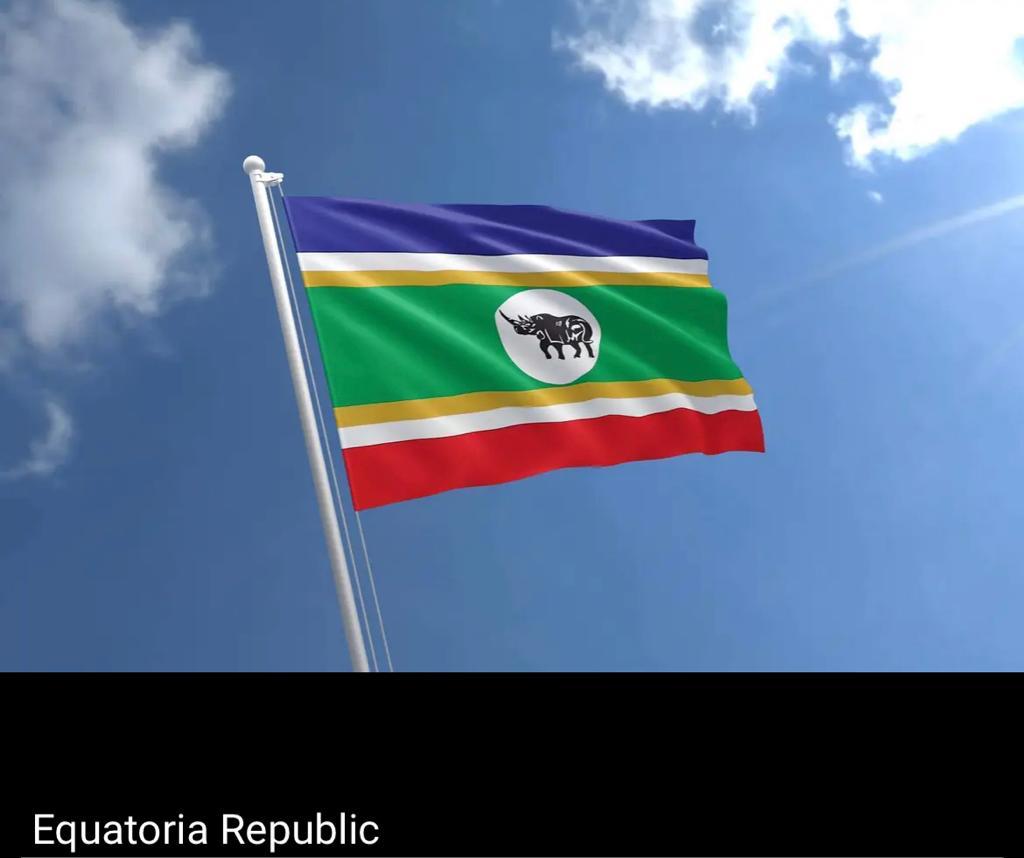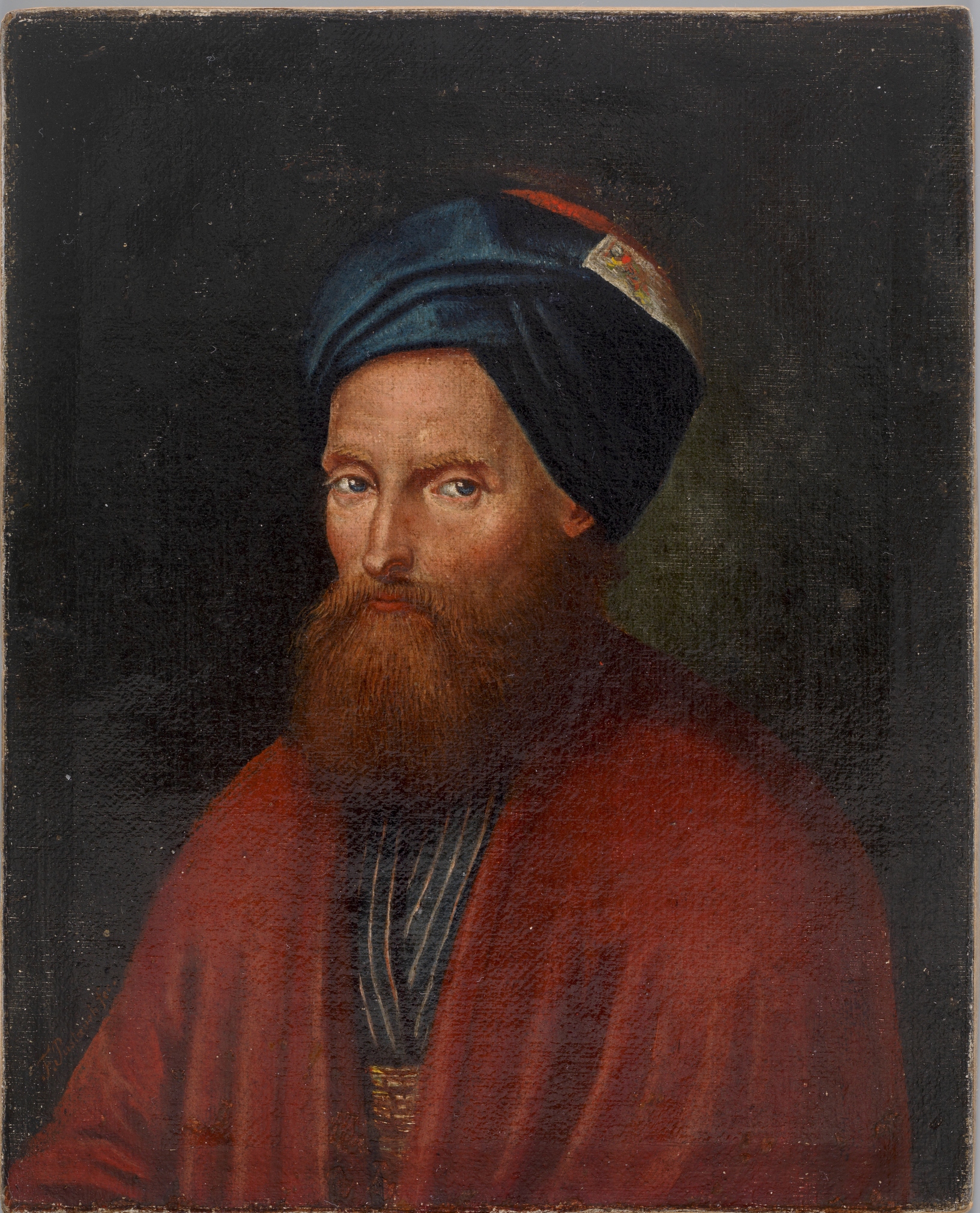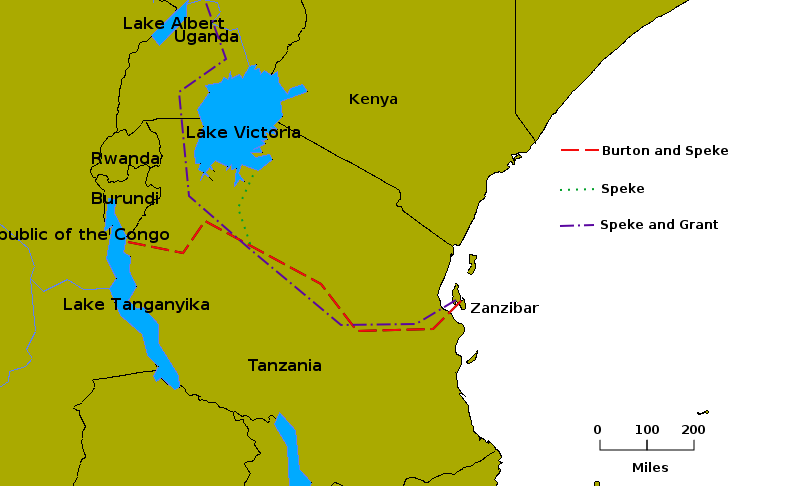|
Gondokoro
Gondokoro island is located in Central Equatoria. The island was a trading-station on the east bank of the White Nile in Southern Sudan, south of Khartoum. Its importance lay in the fact that it was within a few kilometres of the limit of navigability of the Nile from Khartoum upstream. From this point the journey south to Uganda was continued overland. The Austrian Catholic missionary Ignatius Knoblecher set up a mission there in 1852. It was abandoned in 1859. Gondokoro was the scene for the arrival of John Hanning Speke and James Augustus Grant after their two years and five months long journey through Central Africa from Zanzibar. They arrived exhausted on February 13, 1863 and expected to be met by the British consul John Petherick and his rescue party. As Petherick was away hunting in the countryside, the two explorers instead were welcomed by Samuel Baker and his wife Florence Baker, who greeted them with a cup of tea.To The Heart Of The Nile: Lady Florence Baker and t ... [...More Info...] [...Related Items...] OR: [Wikipedia] [Google] [Baidu] |
John Hanning Speke
Captain John Hanning Speke (4 May 1827 – 15 September 1864) was an English explorer and officer in the Indian Army (1895–1947), British Indian Army who made three exploratory expeditions to Africa. He is most associated with the search for the Nile#The search for the source of the Nile, source of the Nile and was the first European to reach Lake Victoria (known to locals as ''Nam Lolwe'' in Dholuo and ''Nnalubaale'' or ''Ukerewe'' in Luganda). Speke is also known for propounding the Hamitic#Hamitic hypothesis, Hamitic hypothesis in 1863, in which he supposed that the Tutsi ethnic group were descendants of the biblical figure Ham (son of Noah), Ham, and had lighter skin and more Hamitic features than the Bantu Hutu over whom they ruled. Life Speke was born on 4 May 1827 at Orleigh Court, Buckland Brewer, near Bideford, North Devon. In 1844 he was commissioned into the British Army and posted to British India, where he served in the 46th Bengal Native Infantry under Sir ... [...More Info...] [...Related Items...] OR: [Wikipedia] [Google] [Baidu] |
Equatoria (region)
Equatoria is a region of southern South Sudan, along the upper reaches of the White Nile. Originally a province of Anglo-Egyptian Sudan, it also contained most of northern parts of present-day Uganda, including Lake Albert and West Nile. It was an idealistic effort to create a model state in the interior of Africa that never consisted of more than a handful of adventurers and soldiers in isolated outposts. Equatoria was established by Samuel Baker in 1870. Charles George Gordon took over as governor in 1874, followed by Emin Pasha in 1878. The Mahdist Revolt put an end to Equatoria as an Egyptian outpost in 1889. Later British Governors included Martin Willoughby Parr. Important settlements in Equatoria included Lado, Gondokoro, Dufile and Wadelai. The last two parts of Equatoria, Lake Albert and West Nile are now situated in Uganda. Under Anglo-Egyptian Sudan, most of Equatoria became one of the eight original provinces. The region of Bahr el Ghazal was split from Equat ... [...More Info...] [...Related Items...] OR: [Wikipedia] [Google] [Baidu] |
John Petherick
John Petherick (1813 – 15 July 1882), was a Welsh traveller, trader and consul in East Central Africa. Life He was born in Glamorganshire, and adopted the profession of mining engineer. In 1845 he entered the service of Mehemet Ali, and was employed in examining Upper Egypt, Nubia, the Red Sea coast and Kordofan in an unsuccessful search for coal. In 1848 Petherick left the Egyptian service and established himself at El Obeid, the capital of Kordofan, as a trader, dealing largely in gum arabic. He was at the same time made British consular agent for the Sudan. In 1853 he moved again to Khartoum and became an ivory trader. He travelled extensively in the Bahr-el-Ghazal region, then almost unknown, exploring the Jur River, Yalo and other affluents of the Bahr el Ghazal river. In 1858 he penetrated to the Niam-Niam country. His additions to the knowledge of natural history were considerable. Petherick returned to England in 1859 where he made the acquaintance of JH Speke, then ... [...More Info...] [...Related Items...] OR: [Wikipedia] [Google] [Baidu] |
Florence Baker
Florence, Lady Baker or Florica Maria Sas; Barbara Szász; Maria Freiin von Sass; Barbara Szasz; Barbara Maria Szász; Barbara Maria Szasz (6 August 1841 – 11 March 1916) was a Hungarian-born British explorer. Born in Transylvania (then Kingdom of Hungary), she became an orphan when her parents and brother were murdered by the Romanian marauders led by Ioan Axente Sever and Simion Prodan who killed approximately 1000 predominantly Hungarian civilians in Nagyenyed on 8–9 January, 1849. She fled with the remains of the Hungarian army to the Ottoman Empire, to Vidin. Here she disappeared as child only to be seen in 1859 by Samuel Baker who rescued her. While Baker was visiting the Duke of Atholl on his shooting estate in Scotland, he befriended Maharaja Duleep Singh and in 1858–1859, the two partnered an extensive hunting trip in central Europe and the Balkans, via Frankfurt, Berlin, Vienna and Budapest. On the last part of the voyage, Baker and the Maharajah hired a wooden boat ... [...More Info...] [...Related Items...] OR: [Wikipedia] [Google] [Baidu] |
Lado, South Sudan
Lado is a small settlement in Central Equatoria in South Sudan, on the west bank of the White Nile. It is situated north of the modern-day city of Juba. When General Gordon was appointed governor of the Egyptian territory of Equatoria in 1874, he moved his capital from Gondokoro to Lado, which had a healthier climate. In 1878 Emin Pasha was appointed Bey of Equatoria, then nominally under Egyptian control, with his base at Lado. At one point the settlement was capital of the Lado Enclave. Travelling through Africa, Russian explorer Wilhelm Junker Wilhelm Junker ( rus, Василий Васильевич Юнкер; 6 April 184013 February 1892) was a Russian explorer of Africa. Dr. Junker was of German descent. Born in Moscow, he studied medicine at Dorpat (now called University of Tart ... stayed in Lado in 1884, and wrote complimentarily of its brick buildings and neat streets.Middleton, p. 300 References Sources * Middleton, J. (1971) "Colonial rule among the Lugba ... [...More Info...] [...Related Items...] OR: [Wikipedia] [Google] [Baidu] |
Charles George Gordon
Major-general (United Kingdom), Major-General Charles George Gordon Companion of the Order of the Bath, CB (28 January 1833 – 26 January 1885), also known as Chinese Gordon, Gordon Pasha, and Gordon of Khartoum, was a British Army officer and administrator. He saw action in the Crimean War as an officer in the British Army. However, he made his military reputation in Qing Dynasty#Rebellion, unrest and external pressure, China, where he was placed in command of the "Ever Victorious Army", a force of Chinese soldiers led by European officers which was instrumental in putting down the Taiping Rebellion, regularly defeating much larger forces. For these accomplishments, he was given the nickname "Chinese Gordon" and honours from both the Emperor of China and the British. He entered the service of the Isma'il Pasha, Khedive of Egypt in 1873 (with British government approval) and later became the List of governors of pre-independence Sudan, Governor-General of the Sudan, where he di ... [...More Info...] [...Related Items...] OR: [Wikipedia] [Google] [Baidu] |
Juba County
Juba County is an administrative area in Central Equatoria state, South Sudan. It was the largest county in Central Equatoria and one of the largest in the entire region of Equatoria. Its county seat was Juba, the state capital of Central Equatoria and the national capital of the Republic of South Sudan. Its population according to the disputed 2008 census conducted by the Republic of the Sudan, prior to South Sudanese independence, was 372,413. In 2015, the county was turned into the state of Jubek. Political geography As of 2011, the county's ''Payams'', or sub-counties, included Bungu, Dollo (or Dolo), Ganji, Gondokoro, Lirya, Lo'bonok, Lokiliri, Mangalla (or Mangala), Northern Bari, Rejaf, Rokon, Tijor, and Wonduruba, the latter of which was administrated by Central Equatoria state. Former ''payams'' that became defunct before independence included Jokala, Juba, Kator, and Muniki. In March 2011, Juba, Kator, and Muniki ''payams'' were consolidated into Juba proper under the ... [...More Info...] [...Related Items...] OR: [Wikipedia] [Google] [Baidu] |
Juba
Juba () is the capital and largest city of South Sudan. The city is situated on the White Nile and also serves as the capital of the Central Equatoria State. It is the world's newest capital city to be elevated as such, and had a population of 525,953 in 2017. It has an area of , with the metropolitan area covering . Juba was established in 1920–21 by the Church Missionary Society (CMS) in a small Bari village, also called Juba. The city was made as the capital of Mongalla Province in the late 1920s. The growth of the town accelerated following the signing of the Comprehensive Peace Agreement in 2005, which made Juba the capital of the Autonomous Government of Southern Sudan. Juba became the capital of South Sudan in 2011 after its independence, but influential parties wanted Ramciel to be the capital. The government announced the move of the capital to Ramciel, but it is yet to occur. History Under the Khedivate of Egypt, Juba served as the southernmost garrison of t ... [...More Info...] [...Related Items...] OR: [Wikipedia] [Google] [Baidu] |
South Sudan
South Sudan (; din, Paguot Thudän), officially the Republic of South Sudan ( din, Paankɔc Cuëny Thudän), is a landlocked country in East Africa. It is bordered by Ethiopia, Sudan, Central African Republic, Democratic Republic of the Congo, Uganda and Kenya. Its population was estimated as 12,778,250 in 2019. Juba is the capital and largest city. It gained independence from Sudan on 9 July 2011, making it the most recent sovereign state or country with widespread recognition as of 2022. It includes the vast swamp region of the Sudd, formed by the White Nile and known locally as the '' Bahr al Jabal'', meaning "Mountain River". Sudan was occupied by Egypt under the Muhammad Ali dynasty and was governed as an Anglo-Egyptian condominium until Sudanese independence in 1956. Following the First Sudanese Civil War, the Southern Sudan Autonomous Region was formed in 1972 and lasted until 1983. A second Sudanese civil war soon broke out in 1983 and ended in 2005 with the ... [...More Info...] [...Related Items...] OR: [Wikipedia] [Google] [Baidu] |
Uganda
}), is a landlocked country in East Africa East Africa, Eastern Africa, or East of Africa, is the eastern subregion of the African continent. In the United Nations Statistics Division scheme of geographic regions, 10-11-(16*) territories make up Eastern Africa: Due to the historical .... The country is bordered to the east by Kenya, to the north by South Sudan, to the west by the Democratic Republic of the Congo, to the south-west by Rwanda, and to the south by Tanzania. The southern part of the country includes a substantial portion of Lake Victoria, shared with Kenya and Tanzania. Uganda is in the African Great Lakes region. Uganda also lies within the Nile, Nile basin and has a varied but generally a modified equatorial climate. It has a population of around 49 million, of which 8.5 million live in the Capital city, capital and largest city of Kampala. Uganda is named after the Buganda kingdom, which encompasses a large portion of the south of the country, includi ... [...More Info...] [...Related Items...] OR: [Wikipedia] [Google] [Baidu] |
Ignatius Knoblecher
Ignatius Knoblecher ( sl, Ignacij Knoblehar or ''Knobleher''; 6 July 1819 – 13 April 1858), also known by his Arabian nickname Abuna Soliman (meaning "Our Father Solomon"), was a Slovene Roman Catholic missionary in Eastern North Africa. He was one of the first explorers of the White Nile basin. Life Knoblecher was born in the small village of Škocjan in Lower Carniola. He studied at the secondary school in Rudolfswerth (now Novo Mesto), at the lyceum and the theological seminary in Laibach (now Ljubljana), and at the College of Propaganda in Rome. On 9 March 1845 he was ordained a priest, and a year later graduated as a doctor of theology. When the Vicariate Apostolic of Sudan was established on 3 April 1846, the Congregation of Propaganda selected Knoblecher as one of the missionaries for the region. Before leaving for central Africa he spent eight months in Lebanon and at other places in Syria to acquaint himself with the rites and customs of the Oriental Christians. T ... [...More Info...] [...Related Items...] OR: [Wikipedia] [Google] [Baidu] |
James Augustus Grant
Lieutenant-Colonel James Augustus Grant (11 April 1827 – 11 February 1892) was a Scottish explorer of eastern equatorial Africa. He made contributions to the journals of various learned societies, the most notable being the "Botany of the Speke and Grant Expedition" in vol. xxix of the ''Transactions of the Linnean Society''. He married in 1865 and settled down at Nairn, where he died in 1892. He was buried in the crypt of St Paul's Cathedral. Grant's gazelle, one of the largest gazelles in Africa, was named after him. Early life Grant was born at Nairn in the Scottish Highlands, where his father was the parish minister, and educated at Nairn Academy, Aberdeen Grammar School and Marischal College, Aberdeen. In 1846 he joined the Indian army. He saw active service in the Sikh War (1848–49), served throughout the Indian Mutiny of 1857, and was wounded in the operations for the relief of Lucknow. African expeditions He returned to England in 1858, and in 1860 joined John Ha ... [...More Info...] [...Related Items...] OR: [Wikipedia] [Google] [Baidu] |



.jpg)
.jpg)


